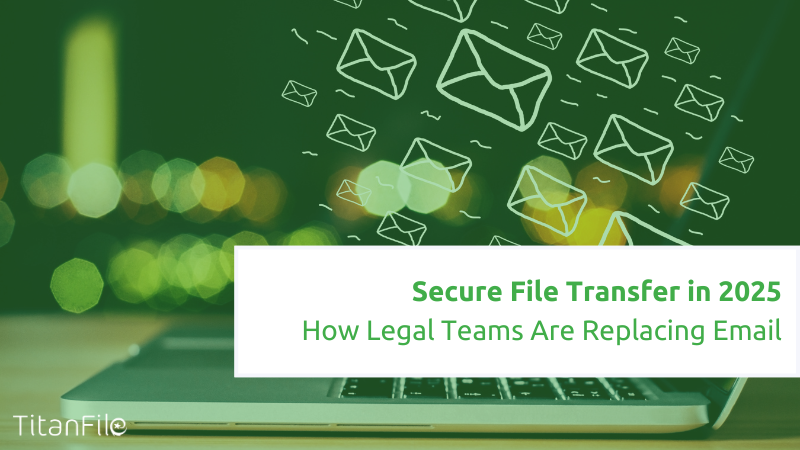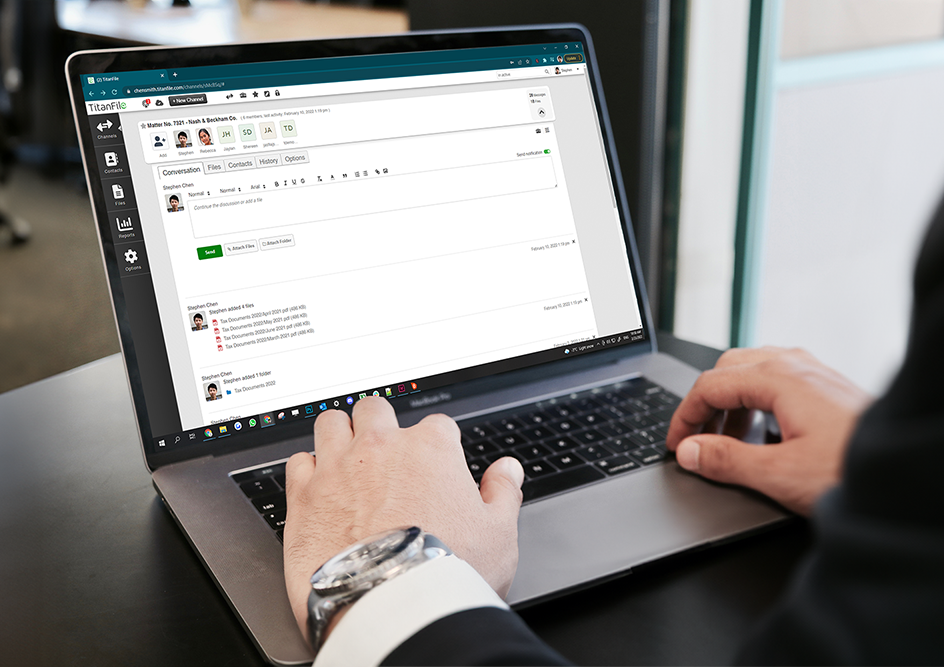Are you still relying on email attachments as your go-to “secure file transfer solution” for your law firm in 2025?
Email attachments are often seen as the most convenient way to share files; however, they pose significant risks, especially for sensitive information. Recent trends from the Information Commissioner’s Office (ICO) indicate that “misdirected emails” consistently rank among the leading causes of data breaches. In the fourth quarter of 2024, 21% of data breaches were attributed to emails sent to incorrect recipients. While email remains a vital tool for communication and information exchange, it is a vulnerable method for transmitting confidential client files due to issues like misdelivery, phishing attacks, attachment size limitations, and the absence of audit trails or proof of sending and delivery.
In 2025, law firms are increasingly adopting more secure file transfer platforms to enhance protection and ensure compliance with ethical obligations. These platforms offer added layers of security, access control, and audit trails, all while integrating seamlessly into existing workflows to avoid hindering lawyers’ productivity. This shift reflects a growing recognition of the need for safer alternatives to traditional email for handling sensitive client information.
Why Email Attachments Don’t Cut It Anymore
Email attachments have traditionally served as a primary means for legal professionals to share documents, case files, and e-discovery materials. However, this method presents notable challenges, particularly regarding security and efficiency. While email facilitates the quick exchange of information, it often fails to adequately safeguard sensitive data, raising significant concerns within the legal community.
As we are moving forward in 2025, the drawbacks of relying on email attachments are becoming increasingly evident, especially in a landscape where data security and client confidentiality are critical. The limitations of this approach may no longer be acceptable, prompting legal professionals to explore more secure and efficient alternatives for document sharing. Most email service providers impose strict attachment size limits. In law firms where hundreds or even thousands of gigabytes of data are exchanged daily, lawyers can’t afford to waste time working around Google and Outlook’s 25 MB cap.
The convenience of email is overshadowed by its inadequacies in security and confidentiality, particularly in the legal sector. In 2023, nearly 30% of law firms reported experiencing a security breach, a trend that continues to rise. High-profile ransomware attacks have targeted law firms’ email systems, compromising over 1.5 million records. With increasing regulatory pressures from laws like HIPAA, PIPEDA, and GDPR, the urgency for robust cybersecurity measures has never been greater. These incidents highlight that even encrypted email services are insufficient for today’s security demands, leaving legal teams in search of more reliable solutions.
What “Secure File Transfer” Looks Like in Legal?
We’ve already discussed why traditional file transfer methods, like email, fall short for legal professionals. Now, let’s shift our focus to what matters most when choosing a modern secure file transfer solution for your firm.
With so many products available in the market, it can be overwhelming to decide which one is right for you. To help narrow it down, here are the most important features every ideal secure file transfer solution should include:
End-to-End Encryption & Access Control: Encryption is essential for secure file transfer. Choose a solution that encrypts data both in transit and at rest, and supports safeguards like Two-factor authentication (2FA), single sign-on (SSO), granular access controls, and audit trails. These features protect confidential data against unauthorized access, prevent leaks, and keep your firm compliant with privacy laws and client confidentiality obligations.
Large File Handling: Law firms handle extensive case files, e-discovery materials, and evidence files, often leaving lawyers pressed for time. They need a secure file-sharing solution that offers rapid upload speeds and supports all file types and sizes. Solutions like TitanFile provide impressive upload speeds of 500Mbps and allow direct uploads of zip folders, eliminating the need for time-consuming compression. This efficiency enables lawyers to share critical data with clients and stakeholders in seconds.
User-Friendly Experience: Lawyers don’t have time to learn complicated tools with steep learning curves. If a solution is difficult to use, they’ll quickly revert to email, no matter how secure or fast it is. They need a secure large file transfer tool with an email-like interface that feels familiar and easy to use. When selecting a secure file transfer solution for your firm, choose a platform that’s intuitive and can be seamlessly integrated into attorneys’ daily workflows, ensuring quick adoption and consistent use.
In 2025, secure file transfer isn’t just another IT upgrade but a necessity for legal teams to safeguard client data while staying competitive and compliant. Law firms that have replaced email with secure file sharing solutions are seeing reduced security risks, improved efficiency, and happier clients.
It’s time to leave clunky email attachments behind and embrace modern, secure file sharing. Want to see how law firms like yours are staying safe and compliant with TitanFile? Start your 15-day free trial today, or book a 15-minute personalized demo with our product expert to explore your specific use case.
Secure file transfer is the future for law firms, and TitanFile is ready to help you get there.



